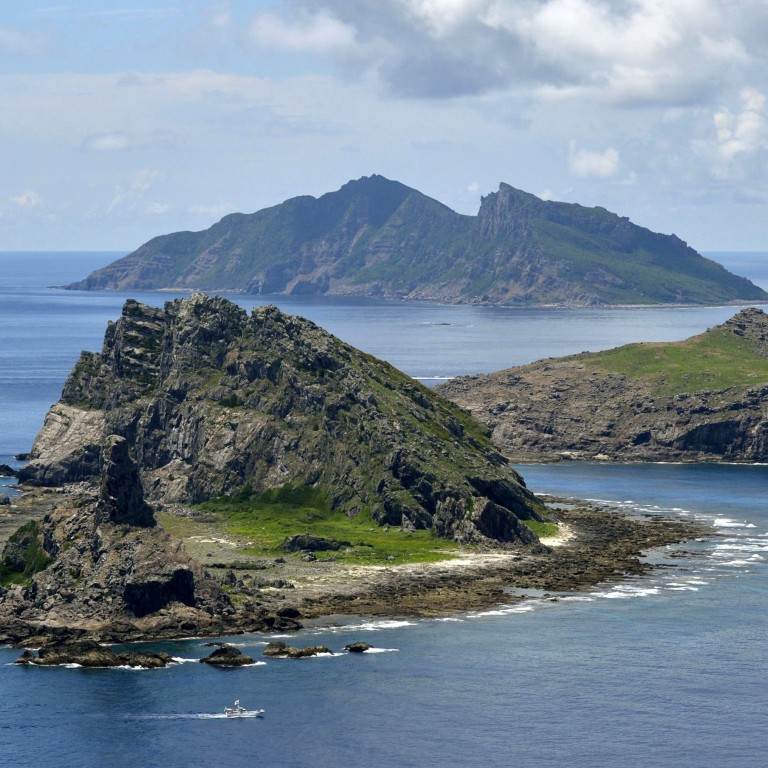
Wading into Okinawan independence debate is not in China's interests
Trefor Moss says by tacitly encouraging talk of independence, it risks inflaming tensions with Japan
Self-determination, the right to decide one's own political fate, has suddenly become a popular cause in the Chinese media. Academics and newspaper columnists have been lining up to argue that a great wrong - the annexation of one country by another - must finally be righted.
They make a strong and refreshing case. Imagine what it must be like to be swallowed up by a foreign power, to witness the erosion of your culture, and to suffer the slow death of your native language. This should not be allowed to go on, they argue: independence should be restored to people from whom, history tells us, it was unjustly stolen.
But don't start banging the drum quite yet. They are not making the case for a free Tibet , for a genuinely autonomous Xinjiang , or even for universal suffrage in Hong Kong. They are talking about the Okinawa island chain in southern Japan - stirring the pot, in other words, of vexed Sino-Japanese relations.
The Okinawan people may indeed have strong grounds for seeking independence. Only formally annexed by Japan in the 19th century, Okinawa has been treated as the poor relation of the Japanese family. The island was obliterated in the war, occupied by the US until 1972, and then belatedly handed back to the Japanese government like an unloved toy.
Even now, Tokyo ensures that most of the US military forces based in Japan remain on the island, out of sight - unless you're Okinawan, that is, in which case the American bases are an insufferable fact of everyday life.
But here's the thing: Japan is a democracy, and Okinawa has an independence movement, which operates freely. According to recent polls, relatively few Okinawans support breaking away from Japan. But an open and vigorous debate is under way. Independence-minded Okinawans hold up Scotland - which may soon break away from the United Kingdom - as an example of how change can occur in a modern democratic context.
The Okinawans are contemplating their future, but there's no version of that future in which China really figures. Chinese support is not something the Okinawans seek or require.
When Okinawa first became a cause célèbre in the Chinese media, in May, Beijing initially took no position. Chinese scholars and commentators were saying the islands were evidently not Japanese; perhaps Okinawa was actually Chinese, or failing that, a rightfully independent state.
By June, squirming officials were offering clarifications that China does not claim Okinawa; they were no doubt mindful of their own frequent warnings to other countries not to interfere in China's internal affairs, and of the need for those warnings to sound vaguely plausible in the future. Yet, even then, Beijing did nothing to close down the convenient controversy about Okinawa's status in the state-run media, or at state-controlled academic institutions.
In the background, of course, is the dispute between China and Japan over another set of islands, the Diaoyu/Senkakus - a separate issue but one which China now seems to be trying to link with Okinawa in order to raise the stakes.
China's motives for wading into the Okinawa debate are clear enough. It wants to put pressure on Japan: maybe Tokyo will eventually cede the Diaoyus to China, the thinking goes, if Beijing agrees to leave Okinawa alone. Maybe it will hasten the departure of the US military, another Chinese objective. Or, as some in Japan and Okinawa itself are starting to fear, maybe China really does want Okinawa for itself.
Yet, for China, it's a clumsy strategy. Japan is already uncomfortable about China's rise, and interfering in the Okinawan issue will only heighten tensions. The same thing applies to the US, which of course has a huge vested interest in Okinawa.
It is hardly the business of one writer, of course, to tell another which subjects he or she ought to be addressing. By all means, let Chinese thinkers and columnists support self-determination for Okinawa, if it's a cause they believe in. But first, if they would like to be taken remotely seriously, they need to talk about the merits of self-determination in those other places, closer to home.
